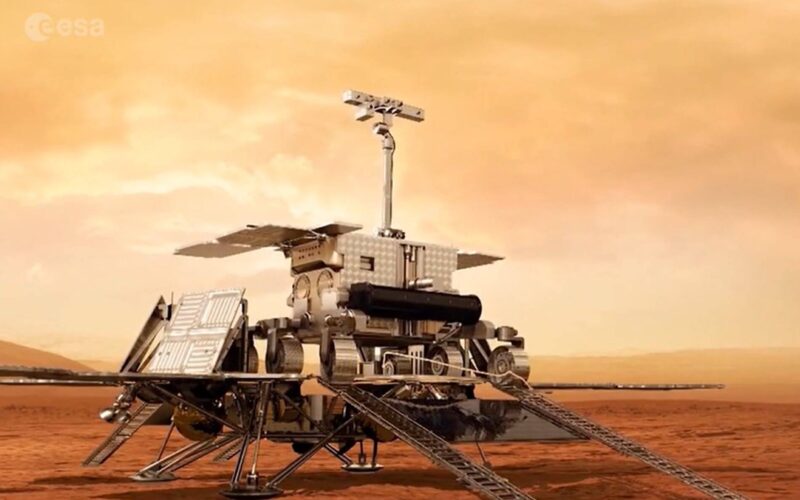ExoMars, the joint European-Russian Mars rover project has been suspended, the European Space Agency (ESA) announced.
According to an ESA press release, in a meeting in Paris on March 16-17, the agency’s ruling Council decided that it would be unable to continue its ongoing cooperation with Roscosmos, the Russian space agency.
Russian aggression towards Ukraine, which ESA said it “deeply deplores”, was cited as the main reason for the suspension.
However, in the same announcement, ESA said its Director General will carry out a “fast-track industrial study to better define the available options for a way forward to implement the ExoMars rover mission”.
ESA also noted that its participation in the International Space Station program will continue as normal.
In response to ESA’s announcement, the head of Roscosmos Dmitry Rogozin wrote a post on his personal Telegram channel saying that the mission is not going to start in September 2022.
Rogozin posted a photo of the suspension letter, which was signed by Josef Aschbacher, the General Director of ESA.
“The labor of thousands of specialists got scratched off by a signature of some ‘eurobureaucrat’. Very sad.” Rogozin said.
He also stated that Roscosmos is going to continue developing the mission single-handedly and will launch the lander on an Angara rocket from Vostochnyi Cosmodrome.
The ExoMars mission was supposed to consist of several parts. The first part, the Trace Gas Orbiter spacecraft, was deployed to Martian orbit in 2016. In 2018, a large robotic rover was supposed to have been launched, however, the project was delayed several times.
The mission, scheduled for September 2022, was supposed to be launched on a Russian Proton-M rocket, and feature a German-built cruise stage, a Russian-built descent stage and Kazachok lander, as well as a Rosalind Franklin rover built jointly by Airbus Defense and Space, Canadian MDA Corporation and Roscosmos.
Following the Russian invasion of Ukraine on February 24, 2022, Roscosmos and various Western space agencies announced that they would be stopping numerous international projects.
On February 26, 2022, citing EU sanctions on Russian tech companies, Roscosmos stopped Soyuz flights from the Kourou spaceport in French Guiana and excluded NASA from the Venera-D project.
In the first two weeks of March 2022, Rogozin announced that Russia would be stopping the supply and maintenance of RD-180 rocket engines to the US, as well as its cooperation with British company OneWeb.
Later, Rogozin issued a threat that should Western countries not lift their sanctions, the ISS “could crash” anywhere on the planet.

